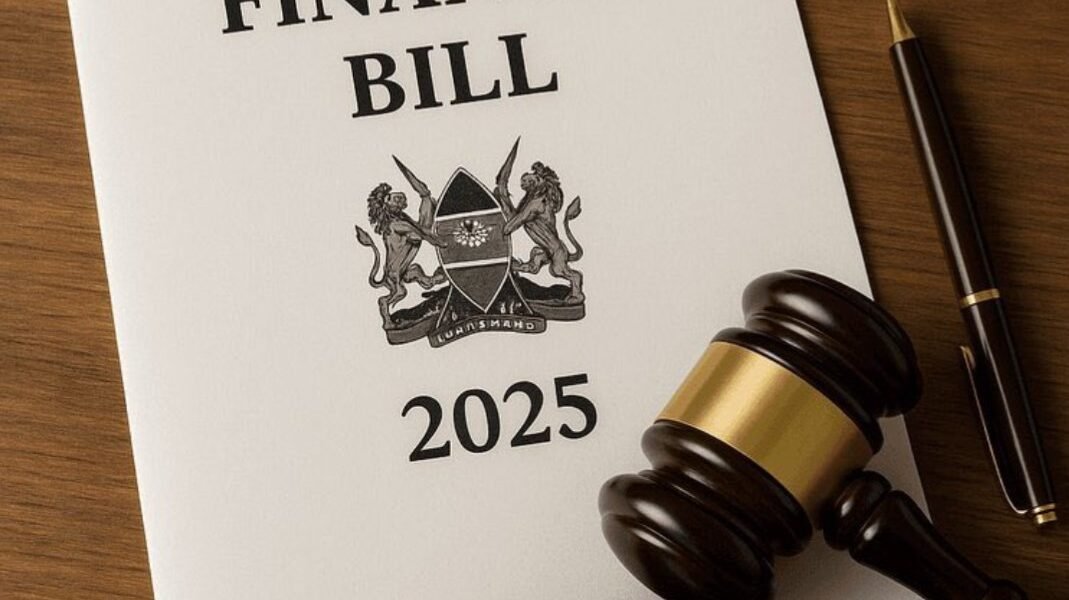The Kenya Finance Bill 2025 has sparked significant debate and concern in the real estate sector, as proposed tax changes threaten to increase costs for buyers, slow down affordable housing delivery, and discourage investment.
While the government aims to boost revenue, stakeholders—including developers, Saccos, agents, and homebuyers—are warning that some provisions could derail the Affordable Housing Program (AHP) and hurt first-time homeowners.
Here’s a breakdown of the key real estate concerns raised by the Finance Bill 2025.
🔥 Top Real Estate Concerns in the Finance Bill 2025
1. Proposed Increase in Stamp Duty
- Current Rate: 1% (residential), 4% (leasehold), 6% (companies)
- Proposed Change: Potential increase to 5–8% on certain transactions
- Impact:
- Could add KSh 100,000–500,000+ to the cost of an average home
- Discourage off-plan purchases and property flipping
- Reduce liquidity in the market
Industry Reaction: “This will kill affordable housing. Buyers already struggle with deposits.” – Bloom Court Group
2. Withholding Tax on Property Sales
- Proposal: Introduce 5–10% withholding tax on all property transactions
- Impact:
- Additional cost for sellers, reducing net profit
- Could discourage people from selling, reducing market supply
- May lead to under-declaring sale prices to avoid tax
Risk: Could push transactions off the books and increase fraud.
3. Taxation of Developer Installment Plans
- Concern: The bill may treat developer financing as credit sales, subjecting them to interest tax or VAT
- Impact:
- Developers may pass costs to buyers
- Could end 0% interest, 24–36 month payment plans
- Hurt low-income buyers who rely on flexible plans (e.g., Bloom Court, Optiven)
Stakeholder Warning: “No installment plans = no affordable housing.”
4. Potential VAT on Affordable Housing Units
- Fear: The bill might remove VAT exemptions on AHP units
- Impact:
- Could raise the price of a KSh 4M home by KSh 400,000–600,000
- Undermine the Big Four Agenda and NHC’s mission
✅ Current Status: Affordable homes are VAT-exempt, but developers fear retroactive changes.
5. Increased Service Charges & Development Levies
- Proposal: Counties may raise service charges and development fees under the bill
- Impact:
- Higher upfront costs for developers
- Could delay or cancel new estates
- Ultimately passed to buyers
6. Impact on Saccos & Mortgage Lending
- Concern: New taxes on Sacco deposits or lending could affect real estate financing
- Impact:
- Saccos like Stima, Mwalimu, and Harambee may reduce mortgage offerings
- Higher borrowing costs for members
- Slower growth in homeownership
📉 Potential Consequences for the Market in the Finance Bill
| Higher Home Prices | Buyers priced out of the market |
| Slower AHP Delivery | Developers delay or cancel projects |
| Reduced Investment | Investors shift to other sectors |
| More Informal Sales | Rise in handshake deals and fraud |
| Job Losses | Construction, sales, and property management jobs at risk |
🗣️ Industry Response & Advocacy
Key players are pushing back:
- Institution of Surveyors of Kenya (ISK) – Urging government to exempt affordable homes
- National Housing Corporation (NHC) – Warning that tax hikes undermine national goals
- Real Estate Developers – Calling for dialogue before enactment
- Saccos Federation (SASRA) – Highlighting risks to financial inclusion
Call to Action: “Engage stakeholders before passing laws that kill housing.”
✅ What Should Be Protected?
| Stamp Duty Exemptions for AHP Homes | Keeps affordable housing affordable |
| Zero-Rated VAT on Social Housing | Supports low-income buyers |
| No Tax on Developer Installment Plans | Enables flexible, bank-free financing |
| Withholding Tax Exemptions for First-Time Buyers | Encourages market entry |
📢 How the Government Can Balance Revenue & Growth
✅ Target luxury and speculative sales, not first-time buyers
✅ Exempt AHP and low-cost homes from new taxes
✅ Strengthen compliance instead of raising rates (e.g., use Ardhisasa)
✅ Engage developers, Saccos, and ISK before finalizing the bill
FAQs
Q: Will the Finance Bill 2025 increase property prices in Kenya?
A: Yes, if stamp duty, VAT, or service charges rise—especially for affordable homes.
Q: Is stamp duty going up in Kenya in 2025?
A: Proposed, but not yet passed. The real estate sector is lobbying to keep it low for affordable homes.
Q: How does the Finance Bill affect affordable housing?
A: It could raise costs, slow delivery, and reduce access—undermining the AHP.
Q: Are developer installment plans at risk?
A: Yes—if taxed as credit sales, developers may stop offering them.
Q: What can I do as a buyer or investor?
A:
- Stay informed via ISK, Fuzu, or developer updates
- Buy early if prices may rise
- Support industry advocacy for fair policies
Final Word
The Finance Bill 2025 presents a critical moment for Kenya’s real estate sector. While the government needs revenue, over-taxing property could backfire—killing affordable housing, discouraging investment, and hurting millions of aspiring homeowners.


